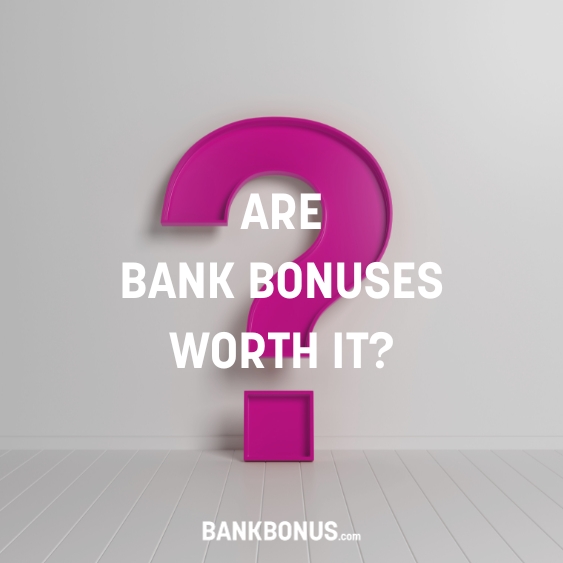You probably already know that your salary, investment returns, and HYSA earnings are considered taxable by the IRS. But what about all that cashback you earned with your rewards credit card? Does Uncle Sam take a cut of that too?
Fortunately, most of the time, the answer is no. While certain situations do require you to pay tax on your credit card rewards, most of these benefits are tax-free.
In this post, we will cover everything there is to know about paying taxes (and how to avoid paying them) on credit card rewards.
Are Credit Card Rewards Taxable Income?
In general, credit card rewards are only considered income when you get something from your credit card issuer for nothing in return. As you can imagine, this doesn’t happen often. Typically, you need to spend money to earn rewards.
Whether it’s a welcome bonus or a point multiplier, you get rewards in exchange for using your credit card. However, there are certain situations where a credit card company might offer you a cash bonus just for signing up. They might also try to retain you as a cardholder by sweetening the pot with some free points.
Again, these things don’t happen often, but it’s important to be aware in case they do.
Taxable Credit Card Rewards
Here are a few situations where you might run into taxable rewards.
Sign-up Bonuses
These days, most credit cards offer a sign-up bonus to new customers, and in general, these bonuses all work in the same way. Once you get a new card, you have a certain amount of time to spend a certain amount of money after account opening. If you do so, you earn a bonus.
For example, let’s look at one of the best cashback credit cards available: Chase Freedom Flex.
With this card, you earn a $200 statement credit if you spend $500 or more within your first three months as a cardholder. In this situation, the $200 cashback reward is not taxable because you had to spend $500 to qualify for it.
If Chase offered the same bonus with no spending requirement, it would be taxable. However, very few issuers offer this type of no-strings bonus.
In general, you can expect to see taxable sign-up bonuses more often with a new bank account than with a credit card.
Referral Bonuses
Similarly, you could run into a taxable situation if you bring new people over to your credit card company. Most major issuers incentivize referrals, so you can earn perks or cash rewards when you get your friends and family to sign up.
However, even the best referral bonuses, like the one from American Express, don’t amount to a ton of extra income. So, unless you’re able to convince everyone you know to open a new card, you won’t rack up significant taxable income.
What to do if your rewards are taxable:
If you find yourself with taxable rewards, your credit card company will most likely issue you a 1099-MISC form, which basically covers miscellaneous income outside of your normal earnings.
However, you’ll only need to file a 1099-MISC if your miscellaneous income exceeds $600. With that said, it is unlikely that you will need to file one from traditional credit card rewards earnings.
Non-Taxable Credit Card Rewards
Here’s the good news: Most types of rewards are not taxable. This is because the Internal Revenue Service (IRS) classifies most credit card perks as rebates or discounts rather than income.
Here are some examples of the most common non-taxable credit card rewards.
Reward Points
Many credit cards offer a point system. With points, the more you spend, the more you earn. Some credit cards even have multipliers in certain categories. For example, the American Express Gold Card offers 4x points at restaurants and grocery stores. When you earn enough points, you can redeem them for gift cards, statement credits, or other rewards.
Since you have to actively spend money to get these points, they’re not considered taxable income, no matter how many you pile up.
Airline Miles
Similarly, airline miles won’t show up on your tax return. These travel rewards accumulate when you spend money with a certain airline, and you can use them for any future travel expenses.
You can think of airline miles as credit card points that are specific to travel. You’re likely to have plenty of opportunities to earn bonus miles, depending on the card you open, so you can fly at a discounted rate regularly if you use your card enough.
As an example, the Capital One Venture card is a top travel card that comes with a 60,000-mile bonus if you spend $3,000 or more in your first three months. Again, these bonus miles are not considered taxable income because you had to spend money to earn them.
Cash Back
Cashback rewards are a common credit card perk and they are also not considered taxable. Like points and miles, you only earn cashback when you spend.
If you’re looking for a great cashback card, check out the Citi Double Cash card. You earn 2% back on every purchase, and there’s no annual fee.
Other Costs to Consider
Even though most credit card rewards aren’t taxable, you can still cost yourself money by pursuing them.
Remember that banks and credit card companies exist to generate revenue. Unfortunately, this means that there are a number of ways that you can end up overpaying.
Here are some other factors to consider when opening a new card.
Annual Fee
Usually, the cards that offer the best rewards typically come with the highest annual fees. For example, the Chase Sapphire Reserve is an awesome travel rewards card, but it comes with a hefty $550 annual fee.
Keep this in mind as you look around for a new card. If the perks don’t justify the cost, you should keep searching.
Interest Rate
Every credit card comes with an interest rate. This percentage is the amount you owe if you don’t pay your balance off on time. If you tend to carry a balance from month to month, you want to look for a card with a good interest rate to avoid costly charges.
However, your interest rate is rendered meaningless if you pay your balance in full each month. So, if you are responsible, you’ll never pay a dime in interest. Unfortunately, many people aren’t, and they wind up falling into massive credit card debt as a result.
Trust me, that is not a situation you want to get into.
Credit Score
Outside of charges and fees, the way you use your credit card can also have an impact on your credit score. If you pay your bill in full on time, this impact is positive. However, if you miss payments or run up a bunch of credit card debt, your score will plummet.
Keeping your credit score in good shape is a huge component of healthy personal finance. If you plan to buy a house or take out a loan, you want your credit report to show that you’re someone who can handle it.
Frequently Asked Questions
Do you have to pay income tax on credit card rewards?
Most of the time, no. The only time you pay taxes on credit card rewards is when your issuer offers a bonus that doesn’t require any spending on your part.
Why are credit card rewards not taxed?
Most credit card rewards aren’t taxed because they aren’t considered income. Instead, the IRS designates them as rebates or discounts, which are not subject to income tax.
Are credit card Rewards taxable for business expenses?
Business credit card rewards work in the same way as consumer credit cards. If you earn rewards from expenses within your small business, it’s not likely that they are subject to tax.
Avoid Paying Taxes on Credit Card Rewards
Tax season is never fun, especially when you’re not clear on what you owe and what you don’t. While credit card rewards are an awesome extra perk, they might seem too good to be true sometimes.
Fortunately, it’s extremely easy to avoid paying taxes on credit card rewards. There are very few bonuses that qualify as taxable income, so in all likelihood, you will never receive a 1099 from your credit card company.
However, you never want to get stuck owing more at tax time than you’re prepared for. Even more so, you don’t want to run into an audit for leaving taxable income off of your return. This is why it’s important to understand whether or not every dollar that comes in qualifies as income.
That said, If you’re concerned, don’t hesitate to check in with your credit card company or even with a CPA, especially if this is your first year filing. Personal finance is all about seeking out good information and staying prepared.
So, now that you have all the information on credit card rewards, you can go out and stack up your points.





Comments are closed.
Comments are closed here.